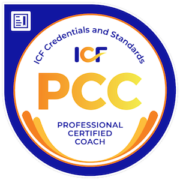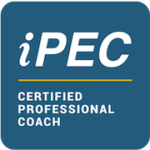What??!!! You want me to love myself too?
Recently, my daughter and I were having a conversation about all the people in her life that she loves. Once she was done identifying all the key people she always lists, I asked her…”and who is THE most important person you should love?” She paused…”You?” “No”, I replied. “Daddy?” Again, I said “no”. “So then who?” she asked. “Yourself”, I replied. “Me?!” she laughed incredulously! “That’s silly, Mommy!” “It’s really important to love yourself”, I told her. “You can’t love yourself”, she informed me. And so began a brief discussion about the value and importance of loving yourself.
It makes sense that my little 4 year-old doesn’t fully grasp the concept and importance of self-love. But that doesn’t mean it’s not time to teach her. As with everything else she has learned, it starts out as this new, strange concept, and after a while becomes something that just comes naturally. My therapy practice is filled with children and adults who have never learned how to love themselves. In fact, in many cases, they feel the exact opposite. I have also had friends say to me that their little one makes comments about not liking himself or herself or evening stating “I hate myself”. Kids as young as pre-school age will begin to notice differences between their playmates and themselves. I will never forget the day when my then 3 year old told me one morning as I was about to comb her beautiful curls, “Mommy, I don’t like my hair. I wish I had straight hair like my friends”. And so, little by little, I taught her how cool it is to have curly hair. But I didn’t stop there…I also wanted her to know that she, along with everyone else on the planet, is unique and that being one of a kind is what makes each of us interesting. Being different then becomes something that is not just acceptable about herself and others, but something cool and appealing.
Self-love is the strong sense of respect for and confidence in oneself. As with everything else we want our kids to know, we have to consciously and deliberately teach our children how to love themselves. If you think about it, how else will they know?? Parents may worry that talking about and teaching your kids to love themselves might lead to a child being conceited, arrogant, or selfish. But I can reassure you that it doesn’t. A child that has respect, compassion, love, kindness, and care for themselves, as well as the ability to take responsibility for their actions will not become conceited or arrogant. In fact, as a child learns to feel this way about him or herself, they also learn how connected they are to others and how to have similar feelings for others. You teach your child self-love by providing unconditional love and acceptance…and by talking about it. The problem is, that one of the most important ways to teach self-love to our children is through modeling our own love of ourselves and most adults have so much self-doubt that this is what we project onto our children, thus perpetuating the cycle of self-doubt. If you think about it, how many times has your child heard you say things like, “I’m fat”, “I don’t like my hair”, “I wish I was _______” , “I’m so stupid, I can’t believe I did that” or “If I had _______, I would feel better/happier about myself”. How many of us think that being hard on ourselves is a motivator for us to take action? We forget that our children are watching and while we may want them to do a much better job at loving themselves than we do, it’s hard to teach them something that we have no idea how to do ourselves.
Leave a comment below about how you model (or not) self-love to your children.





